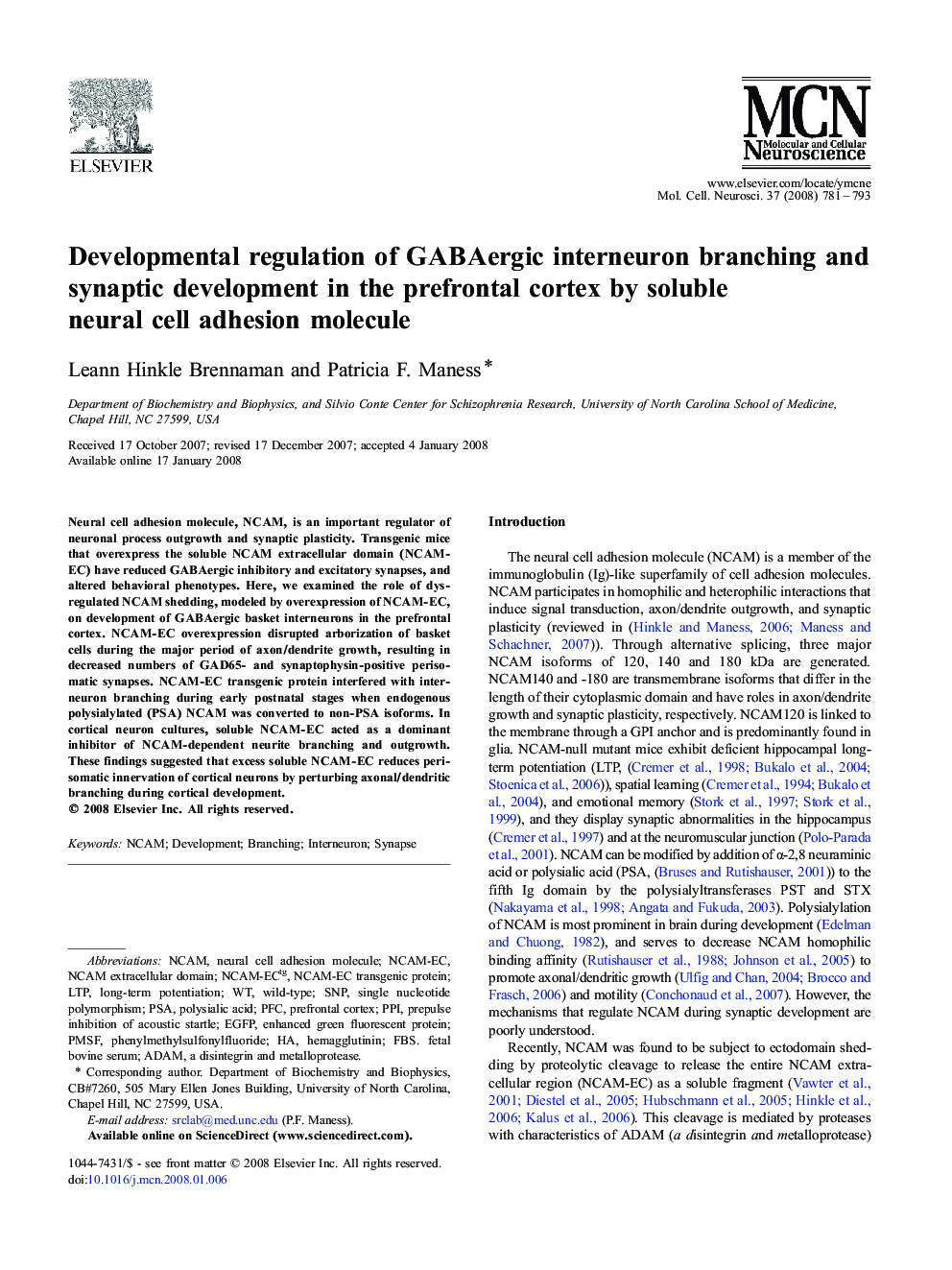| Article ID | Journal | Published Year | Pages | File Type |
|---|---|---|---|---|
| 2199130 | Molecular and Cellular Neuroscience | 2008 | 13 Pages |
Neural cell adhesion molecule, NCAM, is an important regulator of neuronal process outgrowth and synaptic plasticity. Transgenic mice that overexpress the soluble NCAM extracellular domain (NCAM-EC) have reduced GABAergic inhibitory and excitatory synapses, and altered behavioral phenotypes. Here, we examined the role of dysregulated NCAM shedding, modeled by overexpression of NCAM-EC, on development of GABAergic basket interneurons in the prefrontal cortex. NCAM-EC overexpression disrupted arborization of basket cells during the major period of axon/dendrite growth, resulting in decreased numbers of GAD65- and synaptophysin-positive perisomatic synapses. NCAM-EC transgenic protein interfered with interneuron branching during early postnatal stages when endogenous polysialylated (PSA) NCAM was converted to non-PSA isoforms. In cortical neuron cultures, soluble NCAM-EC acted as a dominant inhibitor of NCAM-dependent neurite branching and outgrowth. These findings suggested that excess soluble NCAM-EC reduces perisomatic innervation of cortical neurons by perturbing axonal/dendritic branching during cortical development.
